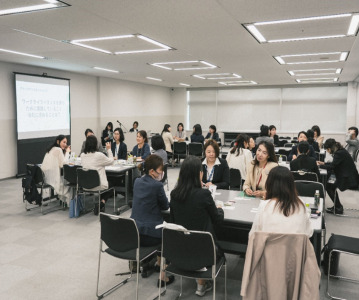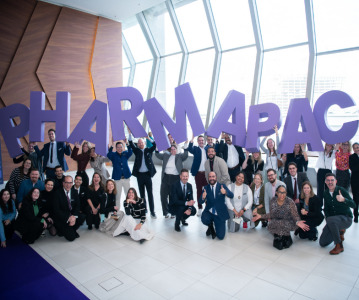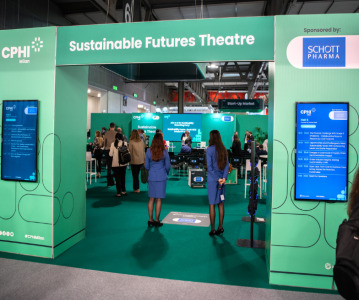3D cell culture experts assemble for inaugural New Frontiers in 3D Conference

Keynote speaker says traditional monolayer cell culture models used to study tumour chemoresistance have proven to be woefully inadequate.
Experts in next-generation 3D cell culture gathered at the inaugural New Frontiers in 3D Cell Culture-based Screening Technologies Conference held at Johns Hopkins University in Baltimore, MD. Conceived and organized by InSphero, the National Center for Advancing Translational Sciences (NCATS), the Center for Alternatives to Animal Testing (CAAT), and Promega, the first annual conference brought together thought leaders from major disciplines to discuss application of 3D tissue models to improve in vitro assays used for drug discovery and toxicity testing.
Michael Gottesman, Chief of the Laboratory of Cell Biology at the National Cancer Institute and Deputy Director for Intramural Research, National Institutes of Health, and Thomas Hartung, of the Johns Hopkins Bloomberg School of Public Health and Director of CAAT, delivered keynote presentations at the one-day event. Themed sessions featured presentations from some of the world's leading pharmaceutical, regulatory, and academic research groups working with 3D model systems, including Novartis, the Hubrecht Institute, Merck, the National Institute of Environmental Health Sciences (NIEHS), Pfizer, The Massachusetts Institute of Technology (MIT), University of Innsbruck, and the Russian Academy of Sciences.
Dr Gottesman, whose research interests include mechanisms by which cancers become resistant to chemotherapy, reinforced in his keynote address that traditional monolayer cell culture models used to study tumour chemoresistance have proven to be woefully inadequate. Gottesman noted: "It should come as no surprise that the world of cell culture is not flat. The meeting was an opportunity to learn about some of the new and exciting advances in 3D cell culture and appreciate the importance of this new technology in studying normal and abnormal cell behaviour."
Jens Kelm, InSphero Chief Technology Officer and New Frontiers Scientific Advisory Board member, said: "The presentations at the conference underscored how 3D cell-based assays are becoming a part of the daily operations in drug discovery and drug safety testing to better classify compounds using more predictive models - the key being robust, uniform, automation-friendly, and easy to use 3D cell models."
The international New Frontiers in 3D conference will be hosted in 2017 at a European site to be determined, with plans to return to the US in 2018.Related News
-
News Women in Pharma: Career Design for Women
Our monthly Women in Pharma series highlights the influential lives and works of impactful women working across the pharmaceutical industry, and how the industry can work towards making the healthcare industry and workplace more equitable and inclusive... -
News Pfizer may shift production back to US under Trump pharma tariffs
At the 45th TD Cowen annual healthcare conference in Boston, USA, Pfizer CEO Albert Bourla outlined the potential for Pfizer to shift its overseas drug manufacturing back to the US as pharmaceutical industry players weigh their options against Presiden... -
News Women in Pharma: Connecting accessible pharma packaging to patients – a Pharmapack Special
Throughout our Women in Pharma series, we aim to highlight how CPHI events encourage discussions around diversity, equity, and inclusion initiatives in the pharmaceutical industry. -
News CPHI Podcast Series: Packaging expert perspectives at Pharmapack 2025
This month's podcast episode sounds a little different, covering the latest event in Paris – Pharmapack 2025. Digital Editor Lucy Chard speaks to several experts direct from the floor of the show, bringing you right in on the action.&nbs... -
News Closing 2024 with Editors' picks of top articles from the past year
Coming to the end of 2024 and it’s certainly been a busy year, for CPHI and for the rest of the pharmaceutical and healthcare industry. Topics of conversation throughout the last 12 months have been varied, touching on the technical, to the polit... -
News SCHOTT Pharma’s sustainable journey with CPHI
Sustainability is of paramount importance in the pharmaceutical industry. See how a recent partnership between CPHI and SCHOTT Pharma has helped to highlight and accelerate their sustainability journey to reach global goals. -
News CPHI Podcast Series: Investing in a vision for the future of life sciences
In this episode Lucy Chard is joined by Rajiv Khatau to discuss the importance of looking into new therapeutic areas and some of the more niche areas of pharmaceuticals, and investing in the future of the industry. -
News Lessons from CPHI Milan 2024: Sunny Intervals for Pharma Manufacturing?
As the 2024 CPHI conference wrapped up in Milan, we caught up with L.E.K. Consulting – a global strategy consulting firm with deep expertise in pharma manufacturing – to discuss evolving market perspectives and business outlook.
Recently Visited
Position your company at the heart of the global Pharma industry with a CPHI Online membership
-
Your products and solutions visible to thousands of visitors within the largest Pharma marketplace
-
Generate high-quality, engaged leads for your business, all year round
-
Promote your business as the industry’s thought-leader by hosting your reports, brochures and videos within your profile
-
Your company’s profile boosted at all participating CPHI events
-
An easy-to-use platform with a detailed dashboard showing your leads and performance







